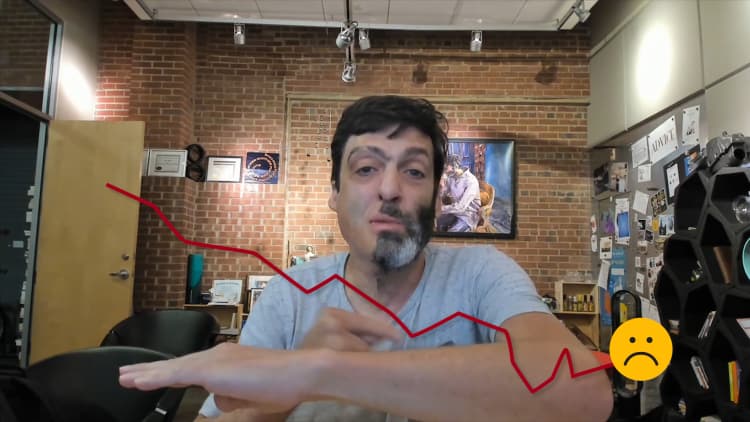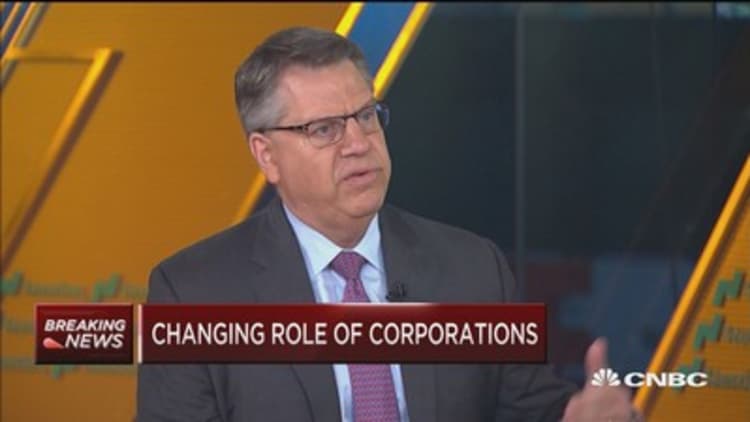The Business Roundtable made news last month. Breaking decades of fidelity to "shareholder capitalism," it declared corporations should serve their communities as well as their owners.
Skeptics dismissed that as "virtue-signaling" to mollify the anti-business left. But what if the Roundtable signaled a broader turning point, toward reordering America's relationship with the free market itself?
Early 21st century discord in the U.S., Britain and elsewhere points toward that possibility. And "The Economists' Hour," a compelling new book by New York Times journalist Binyamin Appelbaum, helps explain how we got here.
Appelbaum traces the rising influence of economists, and the values their discipline embodies, in government decision-making since World War II. Milton Friedman, along with John Maynard Keynes the most influential among them, ushered in the concept of shareholder capitalism in 1970.
Against a Cold War backdrop pitting capitalism against communism, both Democrats and Republicans embraced market forces as the way to sustain prosperity and solve social problems simultaneously. They produced mixed results.
Consumers and business owners benefited more than workers without special skills. Millions lost their livelihoods to foreign competition.
Soviet communism collapsed, and living standards rose in the developing world. Yet rising integration with the global economy didn't halt the long-term slowdown in U.S. growth.
"The embrace of markets lifted billions of people around the world from abject poverty," Appelbaum writes. "Nations have been tied together by the flows of goods and money and ideas, and most of the world's 7.7 billion people live wealthier, healthier and happier lives as a consequence."
He adds: "But the market revolution went too far. In the United States and in other developed nations, it has come at the expense of economic equality, of the health of liberal democracy and of future generations."
In impressive detail, Appelbaum catalogs the ways that revolution reached beyond conventional economic policy. As Americans rebelled against the Vietnam draft, for example, economists advocated the superiority of an all-volunteer force. Volunteers have fought every war since.
To sustain the 1960s boom, Keynesians offered fiscal stimulus from tax cuts and spending increases. To curb inflation, Friedmanites prescribed tight monetary policy even at the cost of a brutal early-1980s recession. To boost stagnant growth, supply-siders promoted one tax cut after another.

America deregulated airlines and Wall Street in the name of enhancing choice and competing internationally. It loosened antitrust enforcement and applied cost-benefit analysis for health and safety rules. It created new marketplaces for everything from acid rain pollution to foreign currency fluctuations. It sent U.S. economists to influence choices by governments abroad.
These efforts aimed to limit distortions imposed by political choices in the belief that efficient markets produce better outcomes for society as a whole. Politicians could use government to help market casualties later.
As it happened, casualties outpaced attempts to assist, and government investments in sources of future prosperity shrank. Large swaths of society fell behind economically while the best-educated moved ahead and the most fortunate soared above everyone else.
"A few people became rich beyond the wildest dreams of Croesus," Appelbaum observes, "but the middle class now has reason to expect that their children will lead less prosperous lives."
The financial crisis and the Great Recession bared and exacerbated those consequences in ways that 10 years of recovery have not erased. The rise of angry populism suggests "the economists' hour" has passed.
President Trump took office vowing to end the "carnage" in America's industrial heartland, though his tax and tariff policies show no sign of doing so. Nor does the drive for Brexit still convulsing British politics.
Trump's 2020 Democratic opponents promise tax, spending and regulatory interventions to lift the working class at the expense of corporations and the rich. Corporate leaders themselves, as the Roundtable made clear, recognize something has to change.
"Capitalism basically is not working for the majority of people," as billionaire hedge fund manager Ray Dalio puts it. "That's just the reality."
What could make it work for more of them? Beyond specific steps such as better safety net programs and stronger unions, Appelbaum proposes more democracy – that is, more choices by elected leaders to elevate equity for their constituents over the marketplace efficiencies that economists celebrate.
"Markets are constructed by people, for purposes chosen by people," Appelbaum concludes. "And they can be changed and rebuilt by people."



